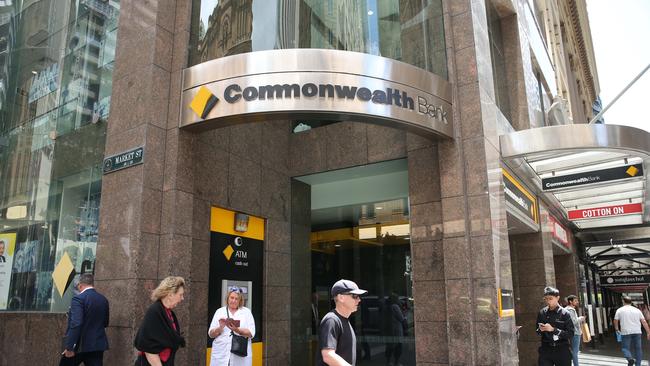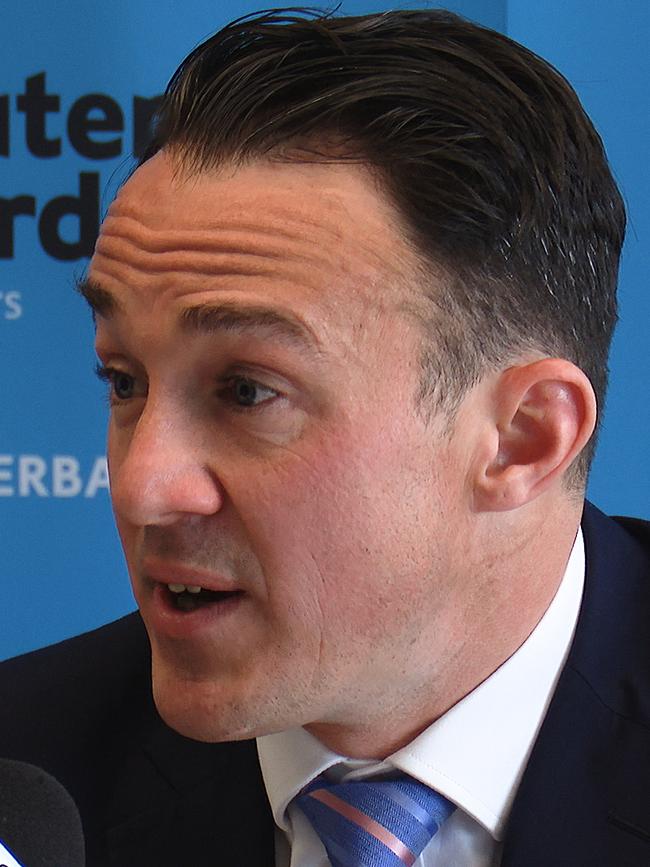Commonwealth Bank, Colonial First State may owe nearly $1bn over alleged super bungle, court hears
Commonwealth Bank and Colonial First State may be on the hook for nearly $1bn as a class action lodged years ago attempts to claw back money for super members.

Commonwealth Bank and Colonial First State may be on the hook for nearly $1bn as a class action lodged years ago attempts to claw back money for super members.
The litigation — first filed by Slater & Gordon in 2018 — will heap more pressure on the already heavily scrutinised superannuation industry after Australia’s regulators revealed plans to crack down on the sector, with allegations industry fund Cbus took longer than a year in some cases to process death and disability payouts.
On behalf of lead plaintiff Keith Kayler-Thomson, Slater & Gordon launched the class action six years ago at first claiming hundreds of thousands of superannuation members could be owed more than $100m after Colonial First State invested retirement savings with its parent bank, CommBank, where it received non-competitive interest rates.
But the Federal Court on Thursday heard that figure may have soared.

“This is going to be a very serious (case). The estimated damages is $900m,” Federal Court judge Jonathan Beach said.
On behalf of the banking major and Colonial, barrister Sera Mirzabegian SC, said she intended to “vigorously defend” the claims.
“We do not accept damages would be anywhere near what is being claimed,” she said.
The parties were fighting on Thursday about Slater & Gordon’s attempt to file its pleadings for a fourth time, with a trial looming in the second half of 2026.
Ms Mirzabegian complained about the delay in the matter, and noted of the 80 individuals personally identified in the proposed court documents, just 14 remained at the Commonwealth Bank and three at Colonial.
“(The) vast majority are no longer at the bank,” she said.
Ms Mirzabegian said the latest pleadings were an attempt to “expand the scope of this case” and that there are “questions about memories (and) whether they will be reliable”.
“It’s possible if we get a trial in a few years we’re nearing 20 years between conduct and trial,” she said.
“We don’t have the ability to interview the full suite of individuals named.
“It’s a very different case to what it was in 2018.”
Justice Beach said while it was “unsatisfactory” for the matter to have dragged out, the allegations are complicated and involve multiple products, time frames and individuals.
The case is set to examine where accountability for alleged failings lies when products or concepts being developed by big companies with little human involvement in their operation.
Barrister Peter Collinson KC appeared for Slater & Gordon, and said cases looking at the issue are likely to increase.
Justice Beach agreed and said “the question is who is responsible”.

In 2018, Slater & Gordon head of class actions Ben Hardwick launched the litigation as the first in a campaign dubbed “get your super back” in the wake of the financial services Royal Commission.
“We will allege that by dumping members’ super with its parent bank, the CBA, Colonial First State failed to obtain the most competitive interest rate available for its members invested in cash-only investment options and balanced options where there is a cash component,” he said.
“The class action will allege there is no excuse for Colonial First State to have accepted such a low rate from CBA when it could have easily obtained a higher rate – either from the CBA or from any other bank.
“A superannuation fund trustee is obligated to act in the best interests of its members, not its parent company. That’s the law.”
A Commonwealth Bank spokesman said: “CBA is vigorously defending the claim and does not accept the applicant’s submission regarding estimated damages.”
The Slater & Gordon case came after the Australian Securities and Investments Commission last week revealed it wrote to Super CEOs declaring the watchdog’s intentions to crack down on the $4 trillion superannuation sector over failures to track end-to-end death benefits claims handling times and “weak” practices.
Slater & Gordon were contacted for comment.





